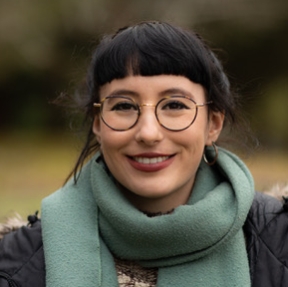
Susannah Glickman
Susannah Glickman is an assistant professor at Stony Brook University. Her research and teaching focus on the history and political economy of computation and information through the transformations in global American science that occurred at the end of the Cold War. She also writes about risk and uncertainty in other fields (for example, in the history of economics). Her current book project examines the infrastructures which make ever-improving semiconductors and quantum technologies possible historically, with particular attention to how ideology and other kinds of narratives get translated into policy and granular practices, and how reciprocally those material practices get translated back into ideology.
Glickman has a background in mathematics and anthropology and works between the fields of science and technology studies and history, mixing archival and oral history methods. She is broadly interested in how institutions deal with the category of the future and the origins of the category “tech.” Her work has been supported by the Science History Institute, the Mellon Foundation, IEEE, IBM, the Heyman Center for Humanities, and the Weatherhead East Asian Institute.

